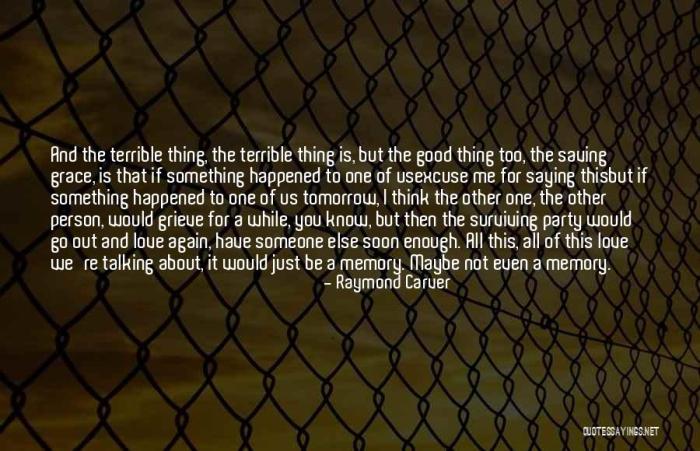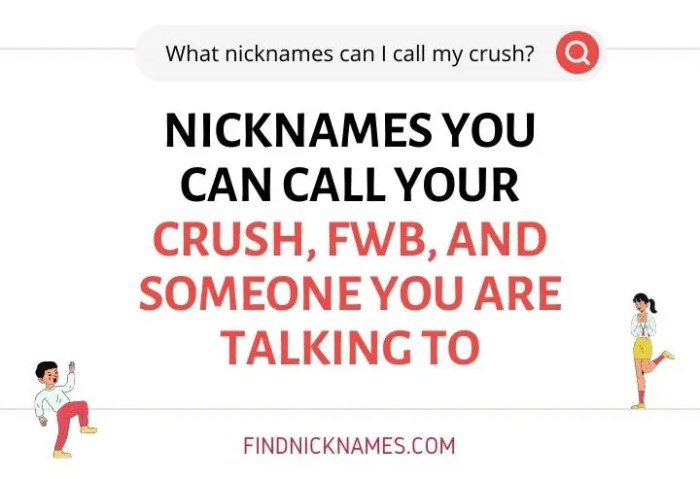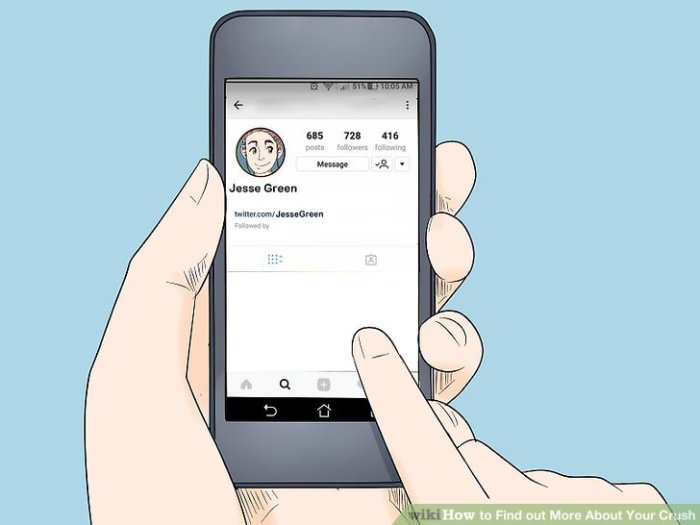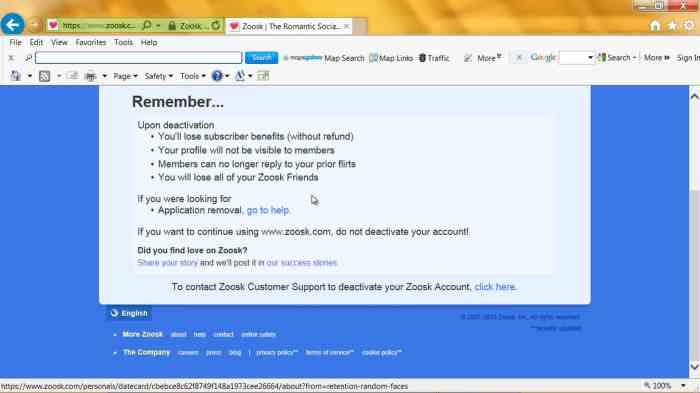Saying I Love You Too Soon explores the complexities of timing in relationships. It delves into the nuances of defining “too soon,” examining the potential consequences and indicators of premature declarations. The article also offers strategies for avoiding these pitfalls and understanding different perspectives on the subject.
The article examines the delicate balance between expressing affection and damaging a budding relationship. It provides a comprehensive look at the various factors that contribute to the concept of saying “I love you” too soon, including cultural norms, individual psychology, and the specific dynamics of each relationship.
Defining “Too Soon”
Saying “I love you” too soon is a complex issue, often fraught with potential misunderstandings and hurt feelings. It’s not simply a matter of a set time frame, but rather a nuanced judgment based on the individuals involved, the context of the relationship, and the cultural norms they navigate. It hinges on the perception of a rushed or inappropriate expression of affection.The phrase “too soon” implies a premature declaration, one that may feel overwhelming or inappropriate to the recipient.
This judgment is subjective, as different individuals have varying comfort levels with emotional intimacy and different interpretations of relationship progression.
Contextual Factors Contributing to “Too Soon”
Understanding the context of a relationship is crucial in determining if expressing love is “too soon.” Factors like the duration of the relationship, the level of emotional intimacy established, and the individual’s past experiences all contribute. A brief encounter might make a declaration of love seem premature, whereas a long-term friendship might not. The perception of “too soon” often depends on the perceived pace of the relationship by both parties involved.
Saying “I love you” too soon can be tricky, right? It’s like a scene in a movie, where the stakes are high, and the emotions are running wild. That’s kind of what I’m thinking watching the new Baby Driver trailer. Edgar Wright is back, and it looks like he’s better than ever. baby driver trailer edgar wright back better ever It feels like a leap of faith, but maybe in a relationship, that leap is a good thing, just like the amazing car chases in the movie trailer.
Ultimately, saying “I love you” needs to feel genuine, not rushed.
Cultural Differences in Defining “Too Soon”
Cultural norms significantly influence the perceived timing of expressing affection. In some cultures, expressing strong emotions like love early in a relationship is common and expected, while in others, it’s considered unconventional or even inappropriate. The emphasis on physical intimacy, emotional openness, and the social expectations surrounding relationships varies greatly between cultures. This difference in cultural norms can create misunderstandings or misinterpretations when individuals from diverse backgrounds interact.
Psychological and Emotional Reasons for Premature Declarations
Several psychological and emotional factors can influence someone to declare love prematurely. A need for validation, insecurity, or a desire to control the relationship dynamics could contribute to a hasty expression. Individuals may also be projecting their own desires onto the relationship, leading to an inaccurate perception of its progression. Emotional immaturity and a lack of experience in healthy relationship dynamics can also contribute to a premature declaration.
Societal Expectations and Norms on Affection
Societal expectations regarding relationships often shape how individuals perceive the timing of expressing love. Media portrayals of relationships, often idealized and fast-paced, can contribute to the expectation that love should be declared swiftly. The pressure to conform to these expectations can lead to premature declarations, even if they don’t align with the relationship’s natural progression.
Table of Situations Where “Too Soon” Might Occur
| Situation | Potential Impact | Possible Indicators |
|---|---|---|
| Meeting someone on a dating app and expressing love after only a few dates. | Could feel overwhelming or disingenuous to the recipient. | Expressing strong feelings before a meaningful connection has been established. |
| Expressing love to a friend after only a few months of becoming close. | Could lead to a strained friendship or the loss of the friendship. | Demonstrating a need for romantic validation instead of platonic appreciation. |
| Declaring love to someone after only a few weeks of knowing them, driven by a strong emotional reaction. | Could lead to rejection and hurt feelings, as the recipient may not feel the same intensity. | Being emotionally impulsive and projecting one’s desires onto the relationship. |
| Declaring love to someone who is clearly not interested in a romantic relationship, despite a strong emotional attachment. | Could lead to disappointment and a damaged relationship. | Inability to distinguish between platonic and romantic feelings, leading to premature declarations. |
Consequences of Saying “I Love You” Too Soon

Jumping to “I love you” before a relationship has had a chance to solidify can lead to a cascade of potential problems. It can feel incredibly powerful and romantic in the moment, but it can also create a foundation built on shaky ground. This premature declaration can strain the relationship and even damage trust. Understanding the possible consequences can help us navigate these situations with more sensitivity and awareness.The rush to label a connection with the strongest terms of endearment can sometimes blind us to the nuances of the relationship’s development.
We often perceive the depth of our feelings, but we might underestimate the other person’s perspective and the emotional maturity required for such a commitment. This can lead to hurt feelings, misunderstandings, and a sense of being rushed.
Negative Repercussions on Emotional Development, Saying I Love You Too Soon
Early declarations of love can often put pressure on both partners. One person might feel overwhelmed by the intensity of the commitment, leading to anxiety and a desire to distance themselves. Conversely, the other person might feel a sense of pressure to reciprocate, which could strain their own emotional capacity. This pressure can stifle genuine connection and create an environment of fear or insecurity.
Damage to Trust and Intimacy
Trust is the bedrock of any healthy relationship. A premature declaration of love can erode this trust if the other person feels pressured or misled. Intimacy requires vulnerability, and when a relationship jumps ahead too quickly, there is a risk of jeopardizing this vulnerability. It can create a feeling of being exposed before the other person feels ready.
The premature expression can lead to a feeling of being used, as if the declaration was more about securing the other person than about a genuine connection.
Relational Outcomes for Both Parties
Premature declarations of love can have distinct effects on both partners. The person who expressed love might feel disappointed or confused if the other person does not reciprocate in the same way. They might experience hurt feelings if the other person is not ready for such a strong commitment. The other person, conversely, might feel overwhelmed, pressured, or even manipulated.
This can create a significant rift in the relationship. Such declarations can lead to a sense of disconnect and mistrust, potentially hindering the growth of the relationship.
Examples of Hurt Feelings and Misunderstandings
Premature declarations can create a variety of hurt feelings and misunderstandings. Imagine a scenario where a person declares their love after only a few dates. The other person might feel rushed and overwhelmed, leading to discomfort and reluctance. This can lead to the other person feeling trapped and wanting to distance themselves, which can further damage the relationship.
Another example could be a situation where a person feels pressured to reciprocate love, leading to a lack of authenticity in their response. This can create a sense of obligation rather than genuine affection.
Negative Consequences of Premature Declarations
| Type of Relationship | Potential Negative Consequence | Example |
|---|---|---|
| Casual Dating | Misplaced Expectations | A person declares love after a few dates, leading the other person to feel pressured and create a premature expectation of a serious commitment. |
| Long-Distance Relationship | Difficulty in Maintaining Emotional Balance | A person declares love without fully understanding the emotional dynamics of the long-distance relationship, creating unrealistic expectations and strain. |
| Friendships | Strained Friendship Dynamics | A person declares love to a friend, potentially disrupting the existing friendship and creating an awkward dynamic. |
| Relationships after Trauma | Delayed Emotional Healing | A person in recovery from trauma declares love too soon, hindering the healing process and potentially causing further harm. |
Indicators of Saying “I Love You” Too Soon: Saying I Love You Too Soon
Falling in love is a beautiful and exciting experience. However, rushing into declarations of love can sometimes lead to complications and disappointment. Understanding the signs that suggest a premature declaration can help you navigate relationships more effectively and avoid potential heartache. Knowing these indicators allows you to approach relationships with a more thoughtful and balanced perspective.Identifying the early warning signs is crucial for fostering healthy and sustainable relationships.
It’s about recognizing patterns in behavior and communication that might point to a need for a more measured approach. This awareness helps to prevent premature pronouncements that could damage or derail the relationship’s natural development.
Common Behavioral Patterns
Recognizing behavioral patterns that suggest a rush to declaration is vital for maintaining healthy relationships. These patterns can often indicate a lack of sufficient time spent getting to know the other person. Premature declarations often stem from an emotional intensity that outweighs the rational assessment of the relationship’s stage of development.
Saying “I love you” too soon can be a risky move, like attempting a complex panty hose sculpture without the proper technique. Learning how to create intricate designs with hosiery, as demonstrated in this tutorial on Make a Panty Hose Sculpture , requires patience and skill. It’s a similar concept to relationships; taking your time to truly understand someone before expressing profound feelings is crucial.
Jumping into declarations of love too quickly can sometimes lead to disappointment, just like a poorly constructed panty hose sculpture might crumble under its own weight.
- Overly Idealized Perceptions: Focusing excessively on positive qualities and minimizing potential flaws can lead to a skewed perception of the relationship. This may cause a premature declaration, as the individual overlooks important aspects of the partner’s personality or behaviors.
- Excessive Sharing of Personal Information Early On: Revealing deeply personal details and vulnerabilities too quickly can be a sign that the relationship is moving too fast. This often indicates an emotional need for validation that may be premature in the relationship’s development.
- Imposing unrealistic expectations: Expecting a level of intimacy or commitment that is not yet present in the relationship can lead to disappointment. This can stem from personal baggage or past experiences, rather than a realistic assessment of the current relationship’s stage.
Emotional Cues
Emotional cues are crucial indicators of potential problems. Unrealistic expectations, unmet needs, and the need for instant gratification can drive premature declarations. These indicators may reveal underlying anxieties or insecurities within the individual, which can be detrimental to a healthy relationship.
- Feeling overwhelmed by emotions: Experiencing intense feelings of love or infatuation, without sufficient time to develop a deeper understanding of the other person, can lead to a premature declaration.
- Unrealistic expectations of commitment: Expecting immediate commitment or a level of intimacy that is not yet present in the relationship can result in disappointment and potential problems down the road.
- Fear of losing the other person: A fear of losing the relationship can cause a premature declaration, as the individual seeks reassurance and validation through this declaration.
Verbal and Nonverbal Communication
Verbal and nonverbal communication are significant indicators of a potentially rushed declaration. Pay attention to the language used and the body language exhibited during interactions. These can reveal an underlying desire to move too quickly.
- Excessive use of “I love you” or similar expressions too early: A consistent and frequent use of phrases like “I love you” early in the relationship, especially if not supported by actions and consistent behaviors, can suggest a premature declaration.
- Pressure to define the relationship: An eagerness to label or define the relationship quickly may indicate a desire for a level of commitment that is not yet warranted by the relationship’s development.
- Overly enthusiastic gestures or displays of affection: While affection is important, excessively enthusiastic displays too early can suggest a rush to label the relationship prematurely.
Red Flags
Recognizing red flags is critical for healthy relationship development. These indicators signal potential problems and should not be ignored. Early detection can prevent a potentially problematic relationship dynamic.
- A lack of genuine interest in getting to know the other person’s life beyond the relationship: This can signal a focus on the immediate emotional experience rather than a deeper understanding of the other person.
- A history of rushing into relationships: Past experiences of prematurely declaring love or entering into relationships quickly can indicate a pattern of behavior that needs to be addressed.
- Ignoring warning signs or red flags: Dismissing concerns or indications of a potential problem can lead to further complications.
Scenario-Based Indicators
Understanding these indicators in different scenarios helps to recognize the potential problems associated with premature declarations.
| Scenario | Indicator | Explanation |
|---|---|---|
| New Relationship (first few weeks) | Frequent declarations of love | Expressing love before a sufficient amount of time has passed to develop a deeper understanding of the relationship. |
| Long-Distance Relationship | Overly reliant on virtual affection | Focusing on virtual affection and communication without sufficient in-person interactions can lead to premature declarations. |
| Relationship with Emotional Issues | Seeking constant reassurance | Seeking validation or reassurance through declarations of love can be an indicator of an underlying emotional need. |
Strategies for Avoiding Saying “I Love You” Too Soon
Navigating the delicate dance of romantic relationships often involves timing. A declaration of love, while heartfelt, can be premature if rushed. Understanding the nuances of building a strong connection and the importance of patience can prevent potential heartache and allow for a deeper, more meaningful relationship.Expressing affection is essential, but timing is key. A premature declaration can create unrealistic expectations and pressure, potentially hindering the natural progression of the relationship.
Instead of focusing on the declaration itself, concentrate on nurturing a foundation of trust, understanding, and emotional intimacy. This will allow for a more profound and lasting connection.
Building a Strong Foundation of Trust and Connection
Trust is the cornerstone of any successful relationship. It takes time to build, and rushing into declarations of love before a solid foundation is established can be detrimental. Focus on consistent actions demonstrating reliability, honesty, and respect. Active listening, empathy, and shared experiences contribute to a deeper connection, allowing both partners to feel truly understood and valued.
Open communication and vulnerability are crucial for fostering trust and understanding. A shared sense of humor and mutual interests are also important in building a strong foundation.
Methods for Fostering Emotional Intimacy and Understanding
Emotional intimacy is a deeper level of connection that goes beyond surface-level interactions. It involves vulnerability, sharing of feelings, and a willingness to be present and supportive in each other’s lives. Actively seeking to understand each other’s perspectives, needs, and desires, and openly communicating those needs are crucial elements of emotional intimacy. Consistent quality time spent together, free from distractions, is essential for deepening emotional intimacy.
Taking time for self-reflection and understanding one’s own emotional needs and triggers will also facilitate a more harmonious relationship.
The Value of Patience and Observation in Relationships
Patience is a virtue, especially in relationships. Rushing into declarations of love before truly knowing someone can lead to disappointment. Taking the time to observe and understand the dynamics of the relationship, both the positive and negative aspects, is invaluable. Observe how your partner responds in different situations, their values, and their reactions to life’s events. Paying attention to subtle cues and body language can offer significant insights into their emotional state and provide a better understanding of their needs.
This observation, combined with patience, allows for a more accurate assessment of the relationship’s trajectory.
Comparing Different Approaches to Relationship Building
Different approaches to relationship building have varying impacts on the timing of declarations of love. A relationship built on a foundation of friendship, shared interests, and mutual respect will likely allow for a more natural and appropriate timing for expressing deep feelings. A relationship characterized by frequent arguments, lack of communication, and a lack of trust will create a more challenging environment to declare love.
Observing and assessing the dynamics of each approach is crucial for ensuring that the declaration of love is both genuine and appropriate.
Steps for Delaying a Declaration of Love
Delaying a declaration of love can be crucial for the long-term health of a relationship. Here are steps to consider:
- Focus on building a strong foundation of trust and mutual respect.
- Actively listen to your partner’s needs and perspectives.
- Spend quality time together, free from distractions.
- Encourage open communication and vulnerability.
- Observe your partner’s behavior and emotional responses in different situations.
- Seek to understand your partner’s values and motivations.
- Avoid pressuring your partner into a declaration of love.
- Continue to nurture the relationship with consistent affection and support.
Understanding Different Perspectives
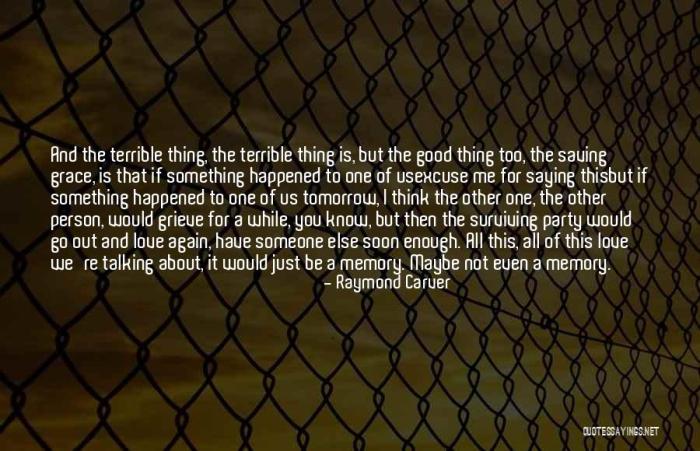
Defining “too soon” in the context of expressing love isn’t a simple equation. It’s a deeply personal and nuanced concept, shaped by individual experiences, cultural backgrounds, and the unique dynamics of each relationship. What one person considers a reasonable timeframe, another might view as premature. This diverse landscape of opinions necessitates a careful consideration of various perspectives to truly grasp the complexities of the issue.Different people, coming from different backgrounds and with varying experiences, hold different opinions about when it’s appropriate to declare “I love you.” Some cultures may encourage more rapid declarations of affection, while others may emphasize a more gradual approach.
Saying “I love you” too soon can feel like a premature declaration, especially when the relationship is still forming. It can be a real risk, like rushing into a final conflict, akin to the intense battles of final conflict ashes to ashes , potentially leaving you feeling vulnerable and exposed. Ultimately, timing is key, and rushing into declarations can sometimes lead to unnecessary heartbreak in the long run.
Personal experiences, such as previous relationships or past hurts, can also heavily influence a person’s perspective on timing.
Varying Viewpoints on Timing
The concept of “too soon” is highly subjective and varies widely depending on the individuals involved and the stage of the relationship. Cultural norms, personal values, and past experiences all play a role in shaping perceptions.
| Perspective | Reasoning | Example |
|---|---|---|
| The “Fast and Furious” Approach | Believe that expressing love early strengthens the bond and shows confidence. They might feel that delaying the declaration could create uncertainty or distance. | A young couple who met online and quickly connected on a deep emotional level. They might express their love early to confirm their feelings and commitment. |
| The “Slow and Steady” Approach | Emphasize building a strong foundation of trust and shared experiences before declaring love. They feel that rushing into declarations can lead to disappointment or pressure. | A couple who met through mutual friends and have gradually grown closer over time. They prioritize getting to know each other well before expressing deep feelings. |
| The “Relationship Type” Perspective | Views timing based on the nature of the relationship (e.g., casual dating, long-term partnership, friends with benefits). A casual relationship might warrant a different approach compared to a committed partnership. | A person in a “friends with benefits” arrangement might feel it’s inappropriate to say “I love you” until the relationship evolves into something more serious. |
| The “Past Experience” Perspective | Individuals who have experienced past hurts or disappointments might be hesitant to express love quickly. They prioritize building a stronger sense of security and trust before expressing their feelings. | Someone who was hurt in a previous relationship might be more cautious about expressing love early in a new relationship. |
Influence of Cultural Norms
Cultural norms and expectations significantly impact how individuals perceive the timing of expressing love. Some cultures encourage open displays of affection and rapid declarations, while others emphasize a more reserved approach. This difference in societal norms can affect individual perspectives on “too soon.”
For instance, some cultures might see a declaration of love after a few weeks of dating as entirely normal, while in others, it might be perceived as unusually forward.
Individual Relationship Dynamics
The specific dynamics of a relationship play a crucial role in determining the appropriateness of expressing love. The level of emotional intimacy, shared experiences, and communication styles all contribute to the timing considerations.
A relationship marked by frequent conflicts and misunderstandings might make an early declaration of love seem inappropriate, whereas a relationship filled with trust, open communication, and shared laughter might allow for a more immediate expression of affection.
Illustrative Scenarios
Saying “I love you” is a powerful declaration, but timing is crucial. Getting it right can deepen connection and build a strong foundation, while saying it too soon can create unnecessary complications and potentially damage the relationship’s trajectory. Understanding the difference between these scenarios is key to navigating the complexities of romantic relationships.The following scenarios illustrate the impact of timing on the declaration of love, highlighting the significant differences in outcome and relationship dynamics.
These examples aim to help readers recognize the subtle but crucial nuances in these situations.
Scenario 1: Saying “I Love You” Too Soon
Amelia and Ben met at a friend’s party and immediately connected. They spent hours talking, laughing, and sharing stories. After just two weeks of dating, Ben, overwhelmed by the intense feelings, declared his love for Amelia. Amelia, though flattered, felt pressured and unsure about her own feelings. She was still getting to know Ben and wasn’t ready to reciprocate the same level of commitment.
This early declaration created a sense of unease and distance between them. Ben’s eagerness seemed overwhelming, causing Amelia to question the genuineness of his feelings and making her hesitant to fully engage in the relationship.The outcome was a sense of pressure and a lack of genuine connection. Amelia felt rushed and ultimately, the relationship faltered. This early declaration, while stemming from genuine affection, lacked the necessary groundwork of shared experiences and deeper understanding, creating an imbalance in the relationship.
The emotional weight of such a declaration before a solid foundation was established created an environment where trust and vulnerability were challenged.
Scenario 2: Saying “I Love You” at the Right Time
Carlos and Diana met at a volunteer event and bonded over their shared passion for environmental conservation. They spent several months getting to know each other, engaging in meaningful conversations, and experiencing shared activities. They celebrated small victories together and supported each other through challenges. After six months of consistent dating and building a strong emotional connection, Carlos felt comfortable expressing his love for Diana.
Diana reciprocated, sharing her own profound affection for him. This declaration felt natural and genuine, further strengthening their bond.The outcome was a deep sense of validation and shared intimacy. Carlos and Diana’s relationship flourished, marked by mutual respect and understanding. The timing of the declaration allowed for a natural progression of the relationship, fostering trust and deepening their emotional connection.
This declaration wasn’t impulsive; it was a result of shared experiences, mutual respect, and a genuine understanding of each other’s values and personalities. It created an environment of trust and comfort, paving the way for a lasting and fulfilling relationship.
Comparison of Scenarios
| Scenario 1: Too Soon | Scenario 2: Right Timing |
|---|---|
| Declaration after only two weeks of dating. | Declaration after six months of dating and building a strong connection. |
| Created pressure and uncertainty for Amelia. | Strengthened the bond and created a sense of validation for both Carlos and Diana. |
| Relationship faltered due to the premature declaration. | Relationship flourished due to the natural progression of their connection. |
| Early declaration lacked the groundwork of shared experiences and deeper understanding. | Declaration was a result of shared experiences, mutual respect, and a genuine understanding of each other. |
Outcome Summary
Ultimately, understanding the potential consequences of saying “I love you” too soon empowers individuals to navigate the complexities of relationships with greater awareness and consideration. By recognizing the indicators of a premature declaration and adopting strategies for thoughtful timing, individuals can foster stronger, healthier connections. This article serves as a valuable guide for navigating the often-tricky terrain of expressing love.
